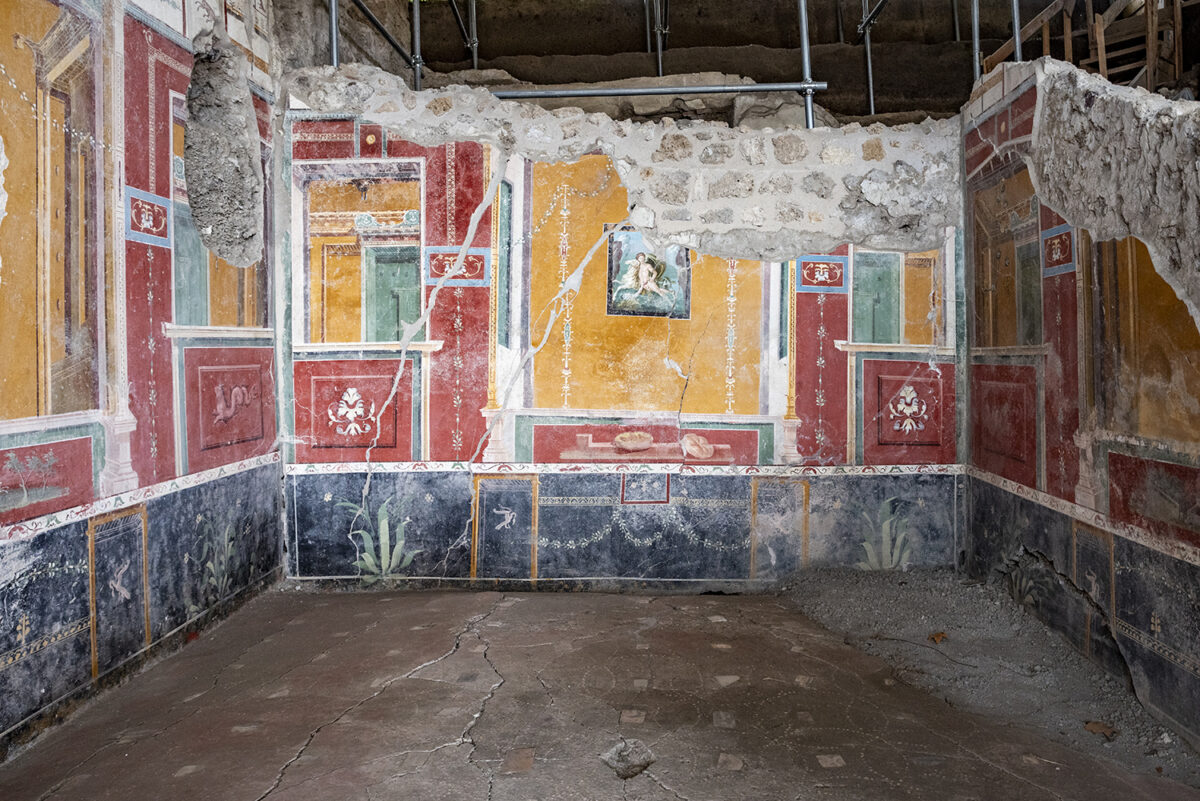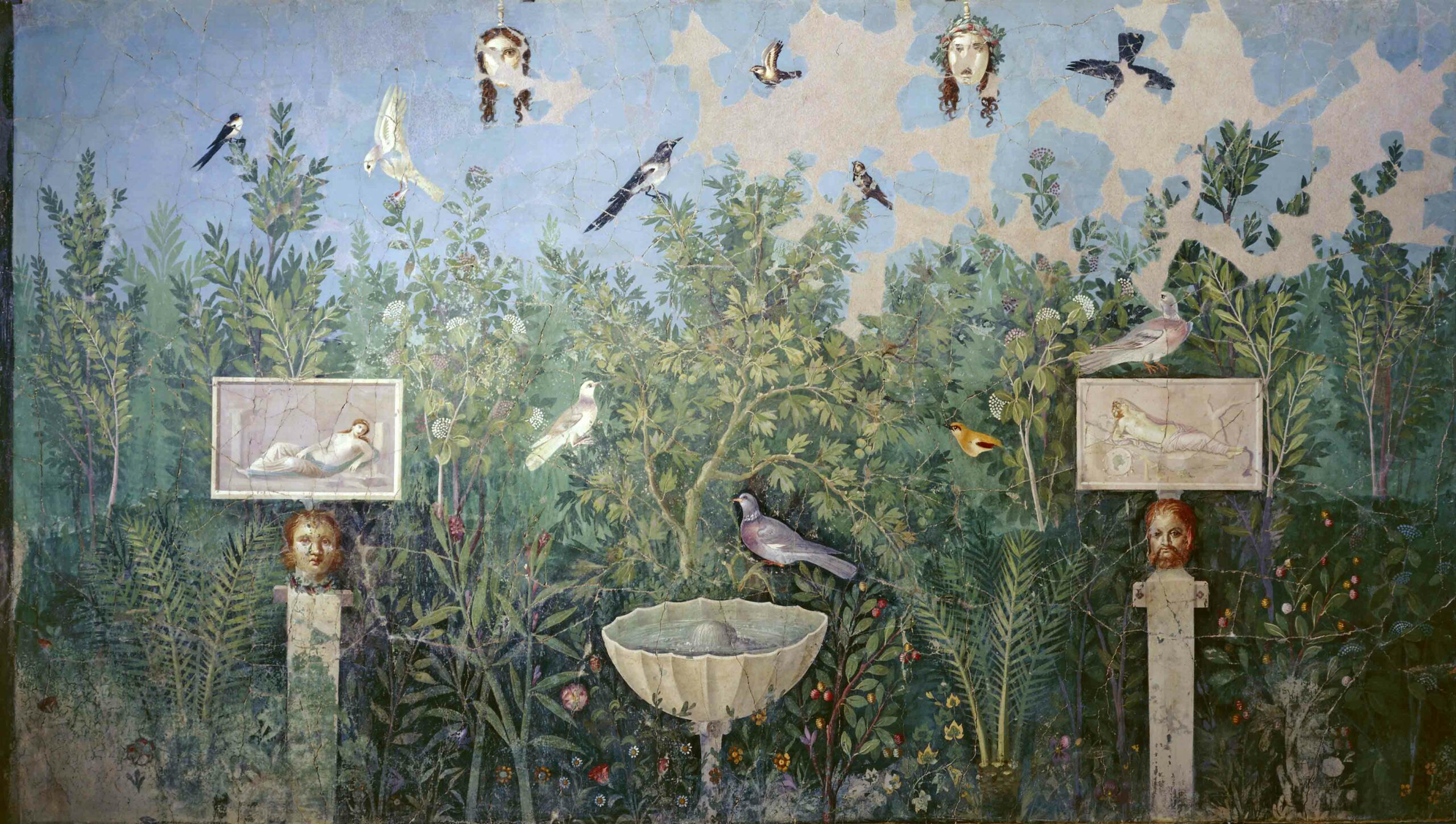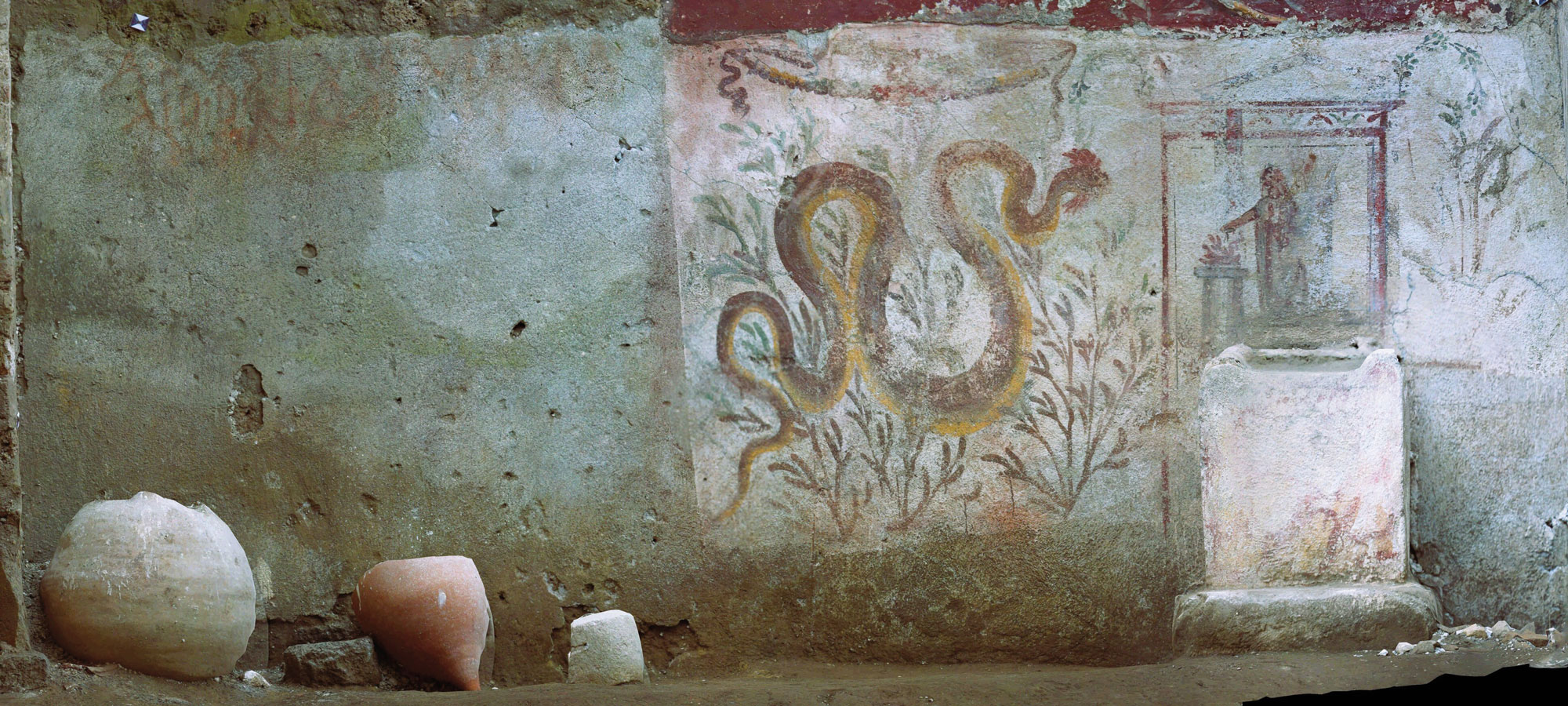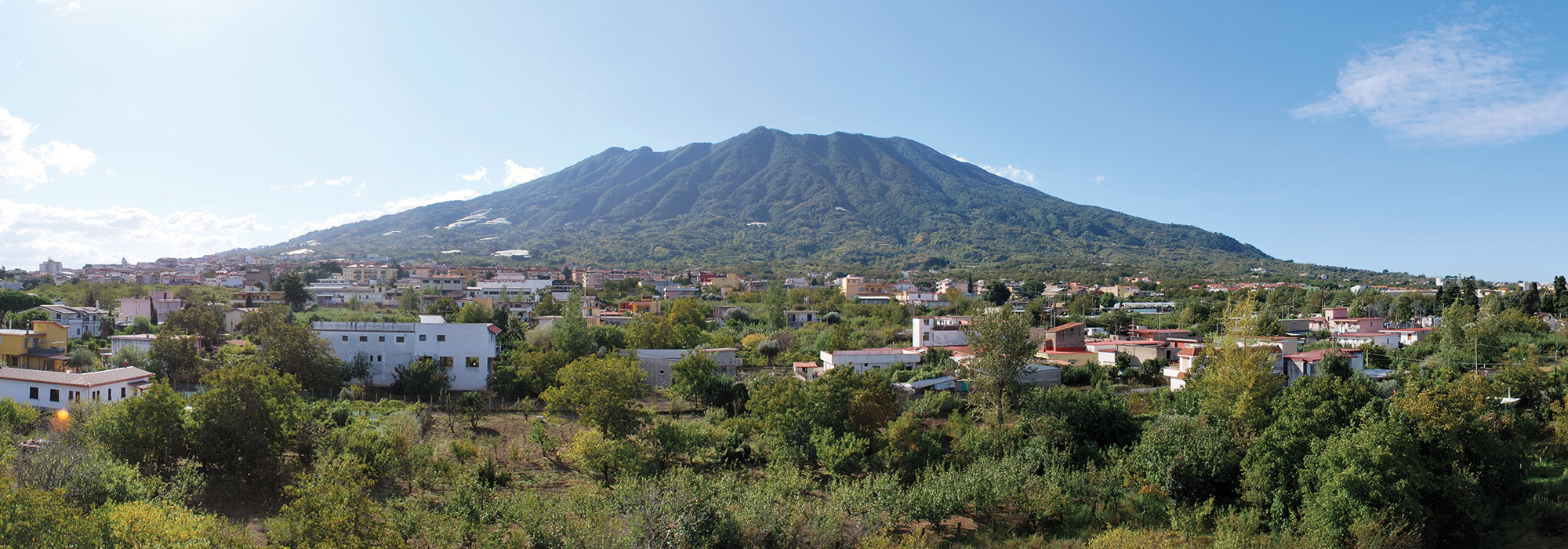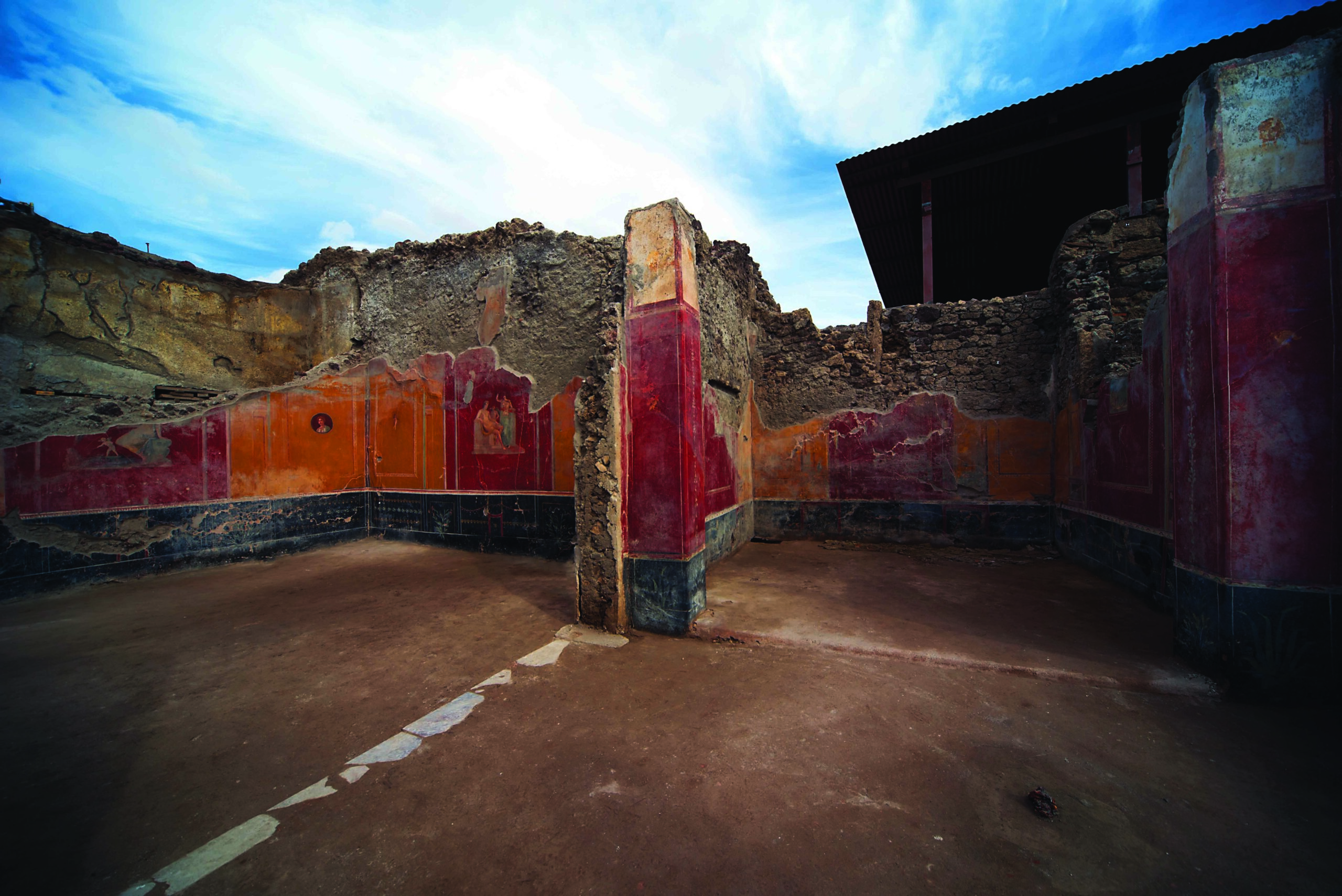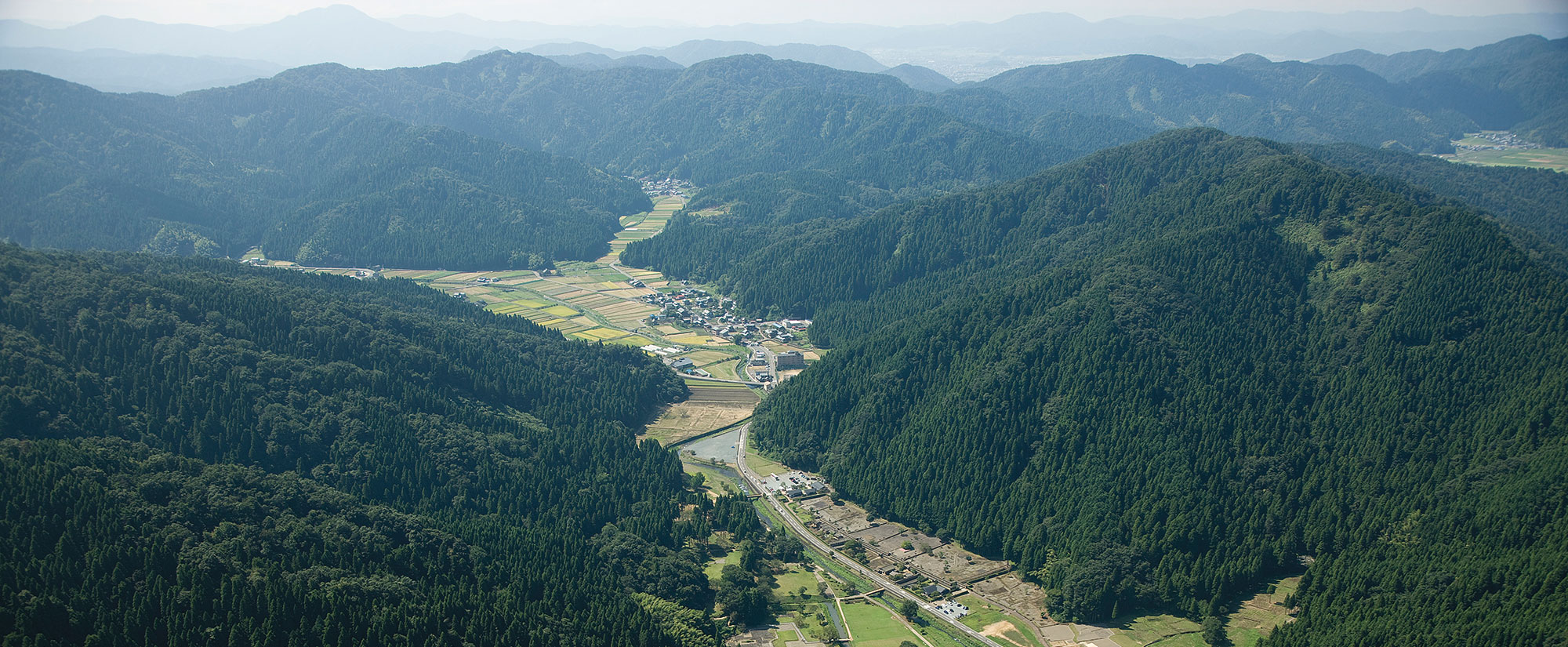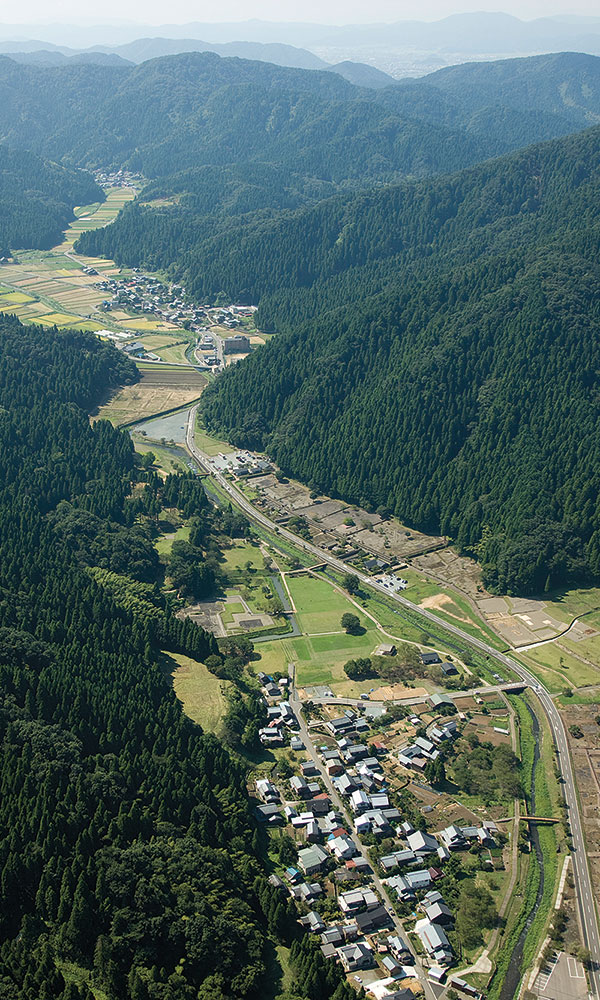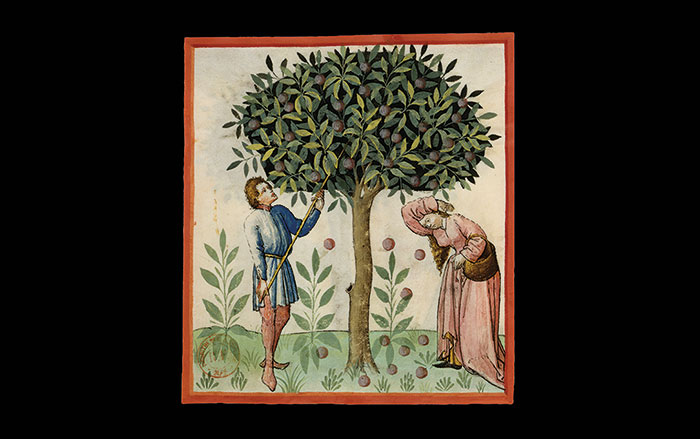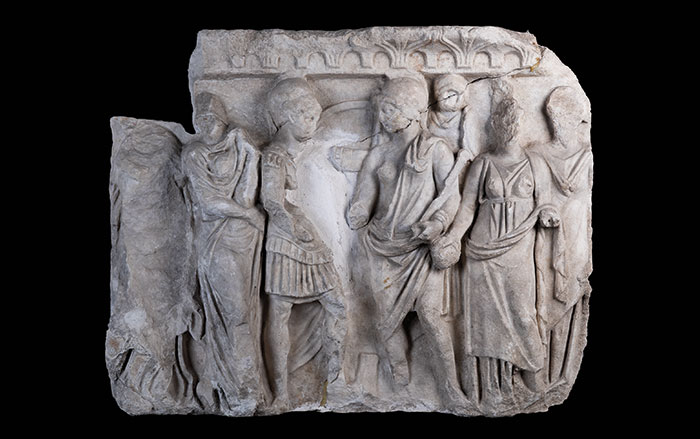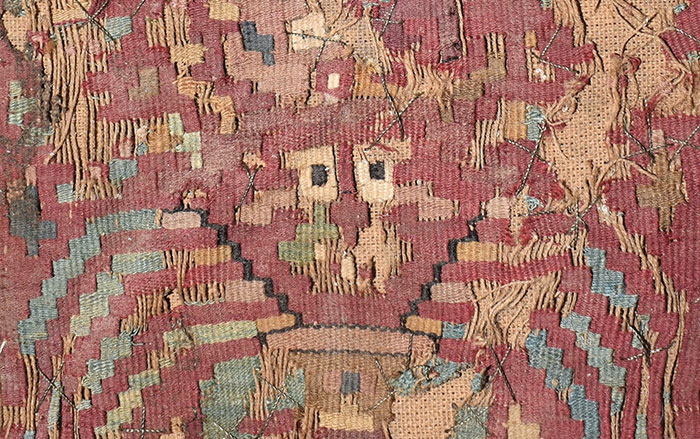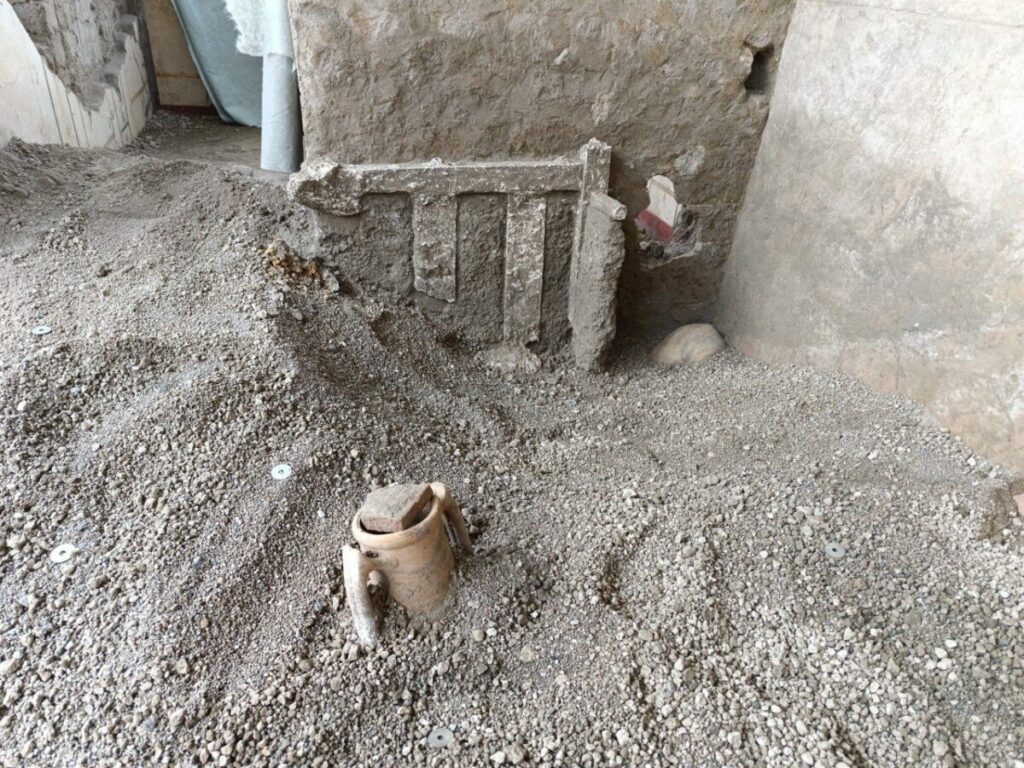
POMPEII, ITALY—The Roman writer Pliny the Younger wrote a firsthand account of the eruption of Mount Vesuvius that buried the Roman towns of Pompeii and Herculaneum in a.d. 79. For the past 250 years, excavations at both sites have attested to the chaos that some of their citizens faced in their final moments. The Independent reports that a new archaeological campaign at Pompeii has revealed how one desperate family tried to prolong their inevitable fate by trying to block a door that was buckling under the weight of volcanic ash spewing from the volcano. The discovery was made in the so-called House of Helle and Phrixus, which is named after a mythological painting adorning one of its walls. The house's residents took refuge in a bedroom during the eruption. While excavating the room, archaeologists uncovered the remains of a bed frame that the family had used to barricade the door. Small fragments of volcanic rock called lapilli were accumulating in the property at an alarming rate and threatened to bury the family alive. Blocking the door was a last-ditch effort to stop the material from entering their final place of safety. Ultimately, the remains of four individuals were found inside, including those of a child. “They didn't make it,” said Gabriel Zuchtriegel, director of the Archaeological Park of Pompeii. “Excavating and visiting Pompeii means coming face to face with the beauty of art but also with the precariousness of our lives.” To read about recent DNA analysis of remains recovered from the House of the Golden Bracelet, go to "Pompeii Friend Group."


